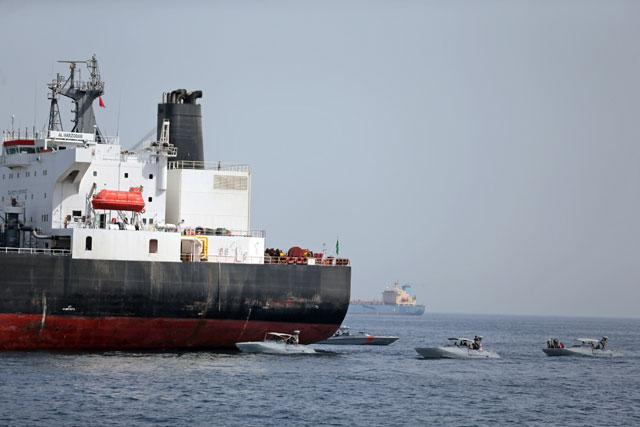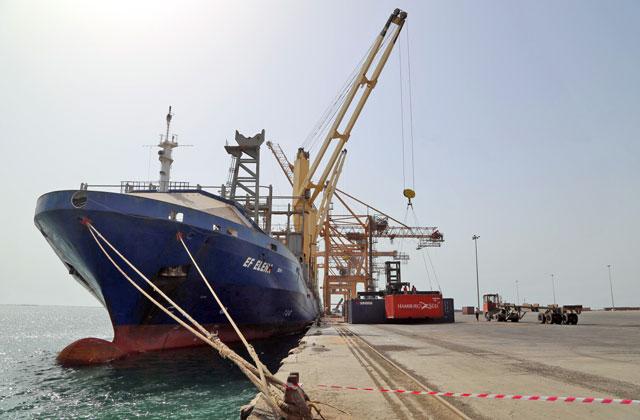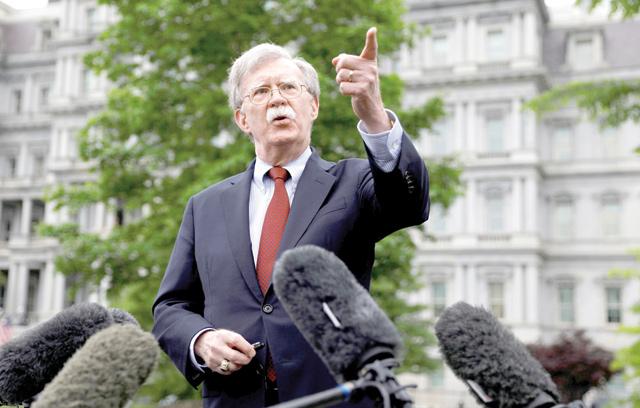You are here
UAE seeks Gulf 'de-escalation' after sabotage attacks on ships
By AFP - May 16,2019 - Last updated at May 16,2019

UAE navy boats are seen next to Al Marzoqah, Saudi Arabian tanker, off the Port of Fujairah, UAE, on Monday (Reuters photo)
DUBAI — The UAE said Wednesday it was "committed to de-escalation" after a spike in tensions in the Gulf but warned it would retaliate hard against Yemen rebel attacks on civilian facilities in the region.
The UAE minister of state for foreign affairs, Anwar Gargash, was speaking after the mysterious sabotage at the weekend of four ships, including two Saudi oil tankers, and after Yemen's Houthi rebels claimed drone attacks Tuesday that shut down a key Saudi oil pipeline.
"We are very committed to de-escalation, peace and stability," he told journalists at a briefing in Dubai.
He said a multicountry investigation into the sabotage attacks would be concluded within days, adding: "We are not going to jump the gun."
"We need to emphasise caution without throwing accusations," he said. "We have always called for restraint and we will always call for that."
However, he blamed "Iranian behaviour" for tensions in the Gulf region, where Washington has sent an aircraft carrier and B-52 bombers in response to unspecified Iranian threats against American interests.
"It is this behaviour that has led to the difficult conditions," Gargash said.
The UAE says three Western countries — the US, France and Norway — would take part in an investigation into the ship attacks, alongside Abu Dhabi and Riyadh.
Gargash was speaking a day after drone strikes hit two pumping stations in neighbouring Saudi Arabia’s key east-west pipeline.
The pipeline, with a capacity of 5 million barrels of crude per day, provides a strategic alternative route for Saudi exports if the Strait of Hormuz at the mouth of the Gulf were to be closed.
Yemen’s Houthi rebels claimed responsibility for the strikes and said they were in response to “crimes” committed by Saudi Arabia and its allies during more than four years of war in support of the government.
The UAE is part of a Saudi-led coalition battling the Houthis in Yemen.
“We will retaliate and we will retaliate hard when we see Houthis hitting civilian targets like what happened in Saudi Arabia,” Gargash said on Wednesday.
OPEC giant Saudi Arabia currently pumps around 10 million barrels per day of which around 7 million are exported.
At present, most Saudi exports are loaded onto tankers at terminals on the kingdom’s Gulf coast and must pass through the Strait of Hormuz.
Iran has repeatedly threatened to close the Strait of Hormuz in case of a military confrontation with the United States.
Related Articles
HODEIDA, Yemen — Yemen's Houthi rebels have handed over security of key Red Sea ports to the "coastguard" but much work remains to remove mi
TEHRAN — Iran's foreign ministry spokesman said Tuesday that the Islamic republic was assisting a "foreign tanker that had encountered a tec
ABU DHABI — US National Security Advisor John Bolton said Wednesday that Iran was almost certainly behind oil tanker attacks that sent Gulf


















